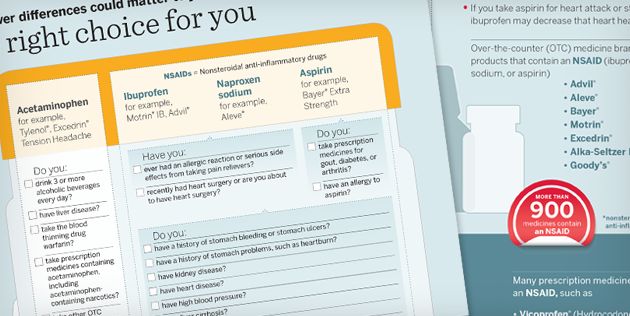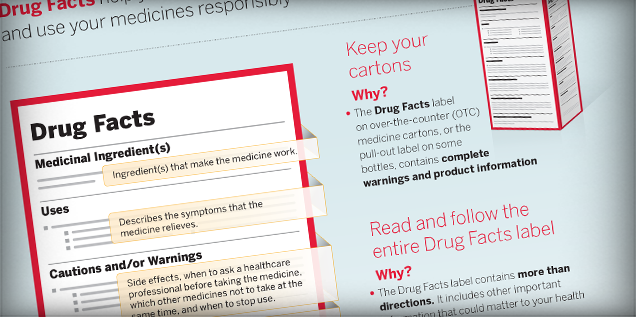Not all over-the–counter (OTC) pain medications are appropriate for everyone. There are 2 main types—and understanding the differences between them could matter to your health.
There may seem to be dozens of choices on store shelves, but there really are only 2 main types of over-the-counter (OTC) oral pain relievers: acetaminophen and NSAIDs (nonsteroidal anti-inflammatory drugs) . Examples of oral NSAIDs include: ibuprofen, naproxen (sodium) and acetylsalicylic acid. They may all relieve the same symptoms, but they work differently in your body and have different active ingredients, warnings, and dosing directions. One type may be more appropriate for you, based on your age, health conditions, and other medicines you currently take. It’s important to understand pain reliever differences so that you can help select an appropriate choice for you. When in doubt, check with a healthcare professional.
2 main types | Medicinal ingredient |
|---|---|
Acetaminophen | Acetaminophen |
NSAIDs | Ibuprofen Naproxen Sodium Acetylsalicylic Acid Diclofenac* |
What to know: Acetaminophen and NSAIDs may treat the same symptoms, but they work differently in your body, and they have different warnings and dosing directions. One type may be more appropriate for you than the other.
The third-party trademarks used herein are trademarks of their respective owners.



